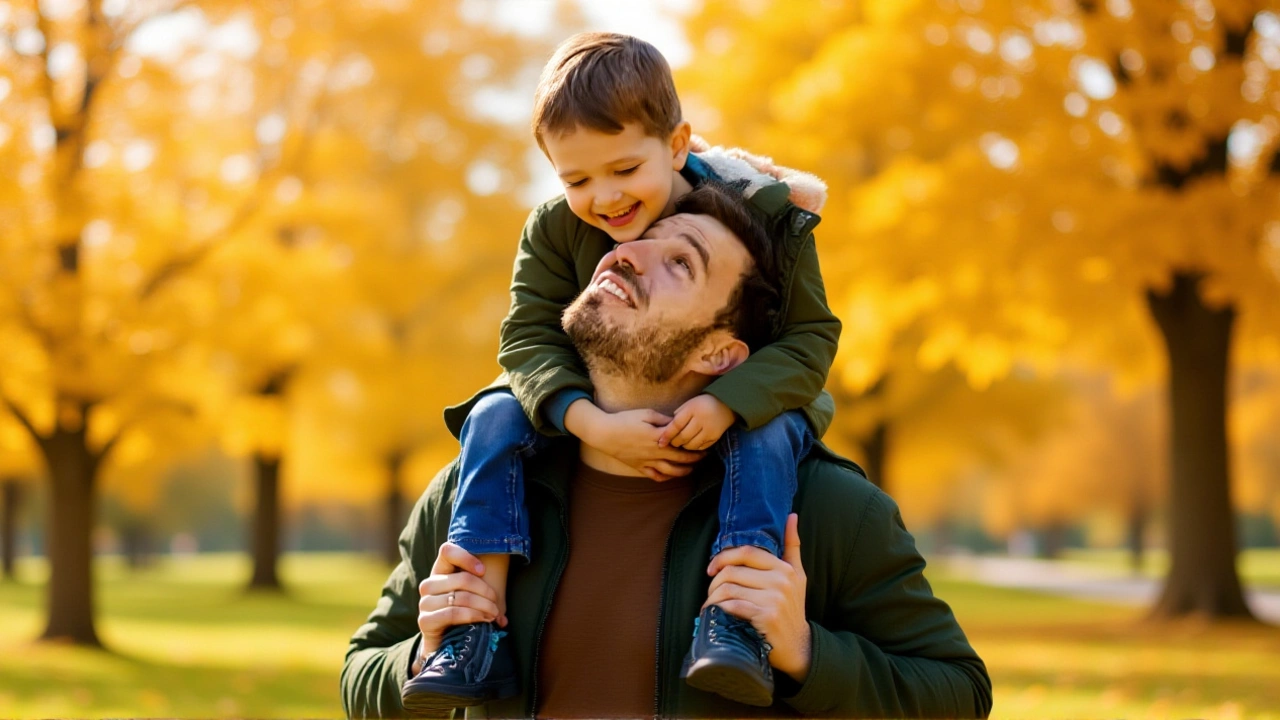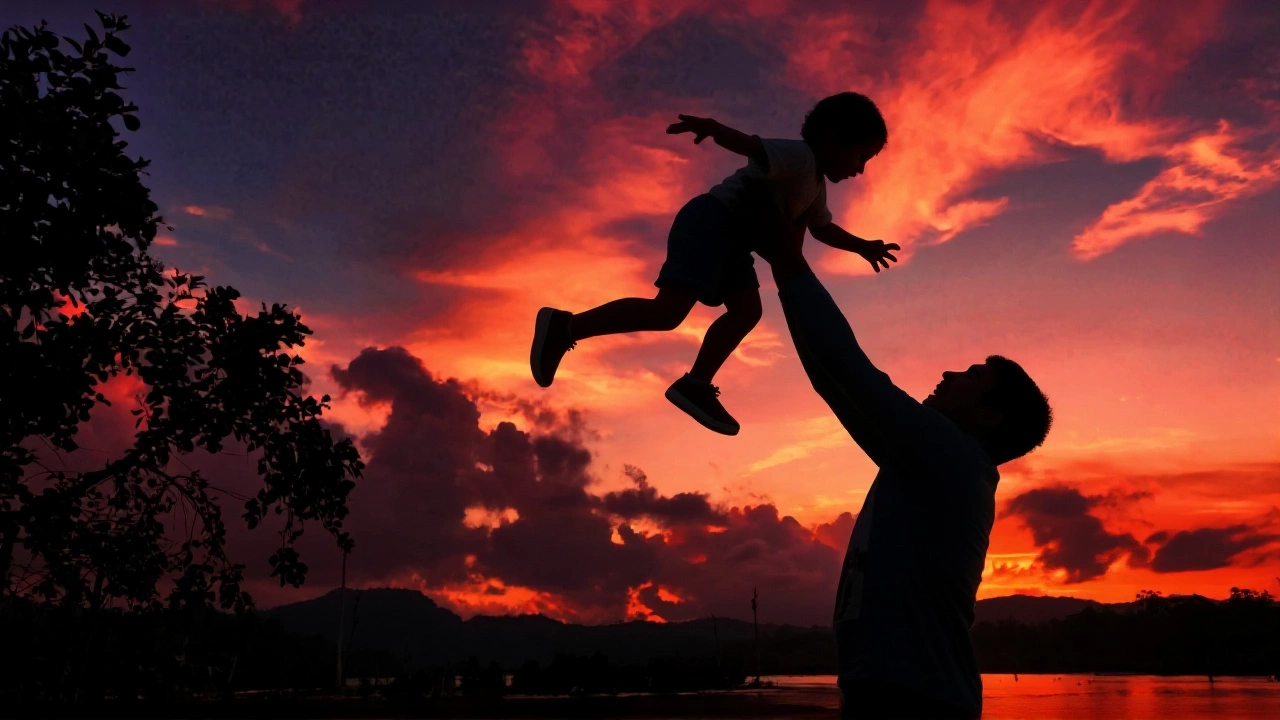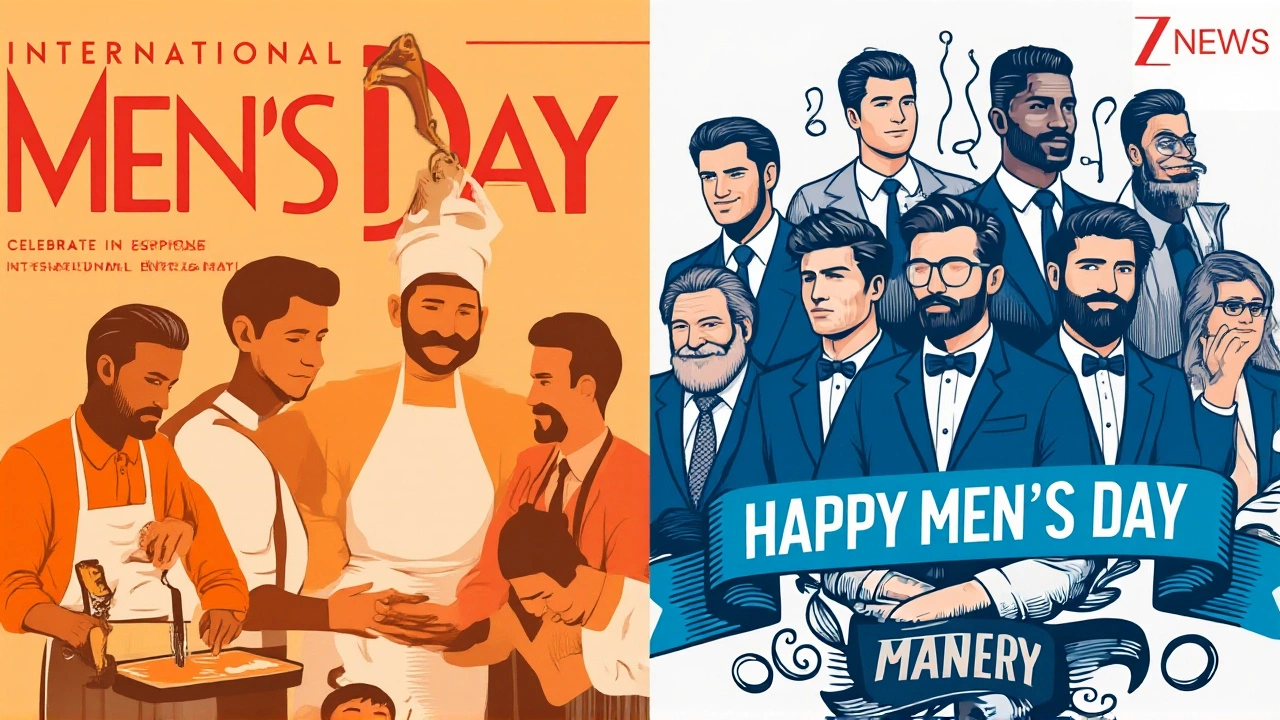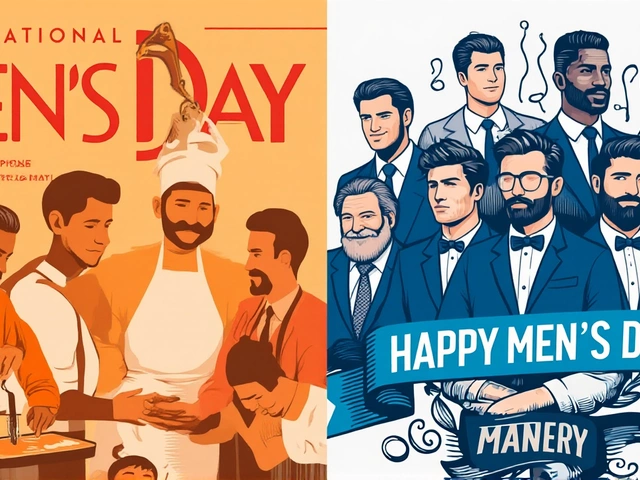On Wednesday, November 19, 2025, the world will pause to recognize International Men's Day with a historic 9-hour live webcast originating from Sydney, Australia. The event, themed Celebrating Men and Boys, isn’t just another awareness campaign—it’s a global conversation, broadcast live from 3:00 PM to midnight Australian Eastern Daylight Time (AEDT), connecting fathers, educators, health workers, and community leaders across 80 countries. For many, it’s a long-overdue spotlight on the quiet struggles men face: higher suicide rates, workplace fatalities, and the stigma around emotional vulnerability. And this year, it’s framed not as a counter to women’s rights, but as part of a broader push for International Men's Day organization’s vision: gender equality that includes men’s well-being.
A Day Rooted in Global Solidarity
Though the first International Men's Day was launched in 1992 by Trinidadian academic Dr. Jerome Teelucksingh, its modern global momentum is undeniable. Today, from Nairobi to New Delhi, communities organize cleanups, mentorship drives, and men’s health fairs. The International Men's Day organization’s official site, internationalmensday.com, stresses that the day isn’t about pitting genders against each other—it’s about recognizing that men’s health, mental resilience, and social roles are just as vital to societal balance as women’s rights. The webcast, described by organizers as “a global movement in real-time,” will feature voices from six continents, including educators in rural India, psychologists in Sweden, and Indigenous leaders in Canada.
November: A Month of Masculine Reflection
This year, International Men's Day is bookended by two other observances, creating what organizers call a “48-hour celebration for men and children.” Movember, the month-long campaign to raise funds for prostate cancer and mental health initiatives, runs all November. Then, on November 20, International Children's Day follows—highlighting the father-child bond. In between, November is officially recognized as Men's Equality Month in several nations, a designation that pushes for equal access to parental leave, mental health services, and education support for boys. “We’re not asking for special treatment,” said one participant in a leaked preview clip from the webcast. “We’re asking for equal attention.”
Who’s Speaking? And Why It Matters
The webcast’s lineup includes John Lund, whose appearance on YouTube via UCM Iom sparked early interest, though his exact role remains unconfirmed. Other confirmed speakers include Dr. Lena Patel, a British psychologist specializing in male adolescent depression, and Carlos Mendez, a former firefighter turned youth mentor in Mexico City. Their stories aren’t polished TED Talks—they’re raw. One segment features a 68-year-old grandfather in rural Ireland describing how he learned to cry after his son’s suicide. Another shows a high school teacher in Johannesburg who started a “Boys’ Circle” after noticing 70% of his male students were silently dropping out. These aren’t anomalies. They’re patterns.

The Numbers Behind the Words
Behind the symbolism are hard truths. According to the World Health Organization, men account for nearly 80% of global suicides. In the U.S., the average life expectancy for men is 73.5 years—nearly five years shorter than women’s. In the UK, men make up 75% of homeless populations and 95% of prison inmates. Meanwhile, a 2024 UNICEF report found that boys are 30% more likely than girls to be held back in school due to behavioral issues—often misdiagnosed as “laziness” rather than untreated trauma. “We teach boys to be strong,” wrote NDTV’s health team in their November article, “but we never teach them how to be safe when they’re breaking.”
What’s Next? The Ripple Effect
The International Men's Day organization says over 220,000 people have registered for the webcast—more than double last year’s numbers. Schools in Australia, Canada, and South Africa are incorporating the event into curricula. In the U.S., three states have introduced resolutions to recognize November as Men’s Well-Being Month. The real test? Whether these gestures translate into policy. Will workplaces expand mental health coverage for men? Will school counselors receive training to spot emotional withdrawal in boys? Will public health campaigns stop treating male vulnerability as a weakness? The webcast won’t answer those questions—but it’s forcing them into the open.

Why This Isn’t Just About Men
Here’s the thing: gender equality isn’t a zero-sum game. When men feel safe expressing grief, asking for help, or staying home to care for children, everyone benefits. Women gain partners who communicate. Children gain emotionally available fathers. Communities gain healthier, more resilient adults. The International Men's Day webcast isn’t about replacing feminism—it’s about expanding it. As one speaker put it: “You can’t have equality if half the population is told to shut up and suffer in silence.”
Frequently Asked Questions
How does International Men's Day relate to gender equality?
International Men's Day promotes gender equality by addressing the unique challenges men face—like higher suicide rates, workplace deaths, and emotional suppression—without diminishing women’s struggles. It argues that true equality includes dismantling harmful stereotypes about masculinity, allowing men to be vulnerable, engaged caregivers and communicators, which ultimately benefits families and societies as a whole.
Why is the webcast hosted from Sydney, Australia?
While International Men's Day was founded in Trinidad and Tobago in 1992, Australia has become a central hub for its modern global coordination. The country’s strong community networks, public support for men’s health initiatives, and time zone advantage (allowing a 9-hour global broadcast) make Sydney a practical and symbolic choice. The event’s organizers are based there, and the country has consistently led in policy innovation around male mental health.
What is Men's Equality Month, and how is it different from Movember?
Men's Equality Month, observed in November, focuses on systemic issues like equal access to parental leave, mental health services, and education support for boys. Movember, by contrast, is a fundraising campaign targeting men’s physical health—primarily prostate cancer and mental well-being. While Movember raises money and awareness, Men's Equality Month pushes for policy change and cultural shifts in how society views male roles.
Who can attend the International Men's Day webcast?
Anyone can register for the webcast, but organizers specifically encourage fathers, teachers, healthcare providers, and community mentors. Registration is required to receive a personalized viewing link and access supplementary resources like discussion guides for schools and workplaces. The event is free and open to all genders—its goal is dialogue, not exclusion.
What impact has International Men's Day had so far?
Since 2010, over 80 countries have officially recognized the day. In 2024, the UK passed a non-binding resolution urging schools to integrate male mental health into their PSHE curriculum. In Brazil, public hospitals began offering free male mental health screenings on November 19. And in 2025, the webcast’s 220,000+ registrants signal a growing cultural shift: men are no longer willing to stay silent about their pain.
Is there criticism of International Men's Day?
Yes. Some feminist groups argue the day distracts from systemic gender inequality or is co-opted by anti-feminist movements. Others say it’s too focused on individual stories rather than policy. But the International Men's Day organization insists its message is inclusive: gender justice requires listening to all voices—including those of men who feel unheard, unhelped, or misunderstood.

